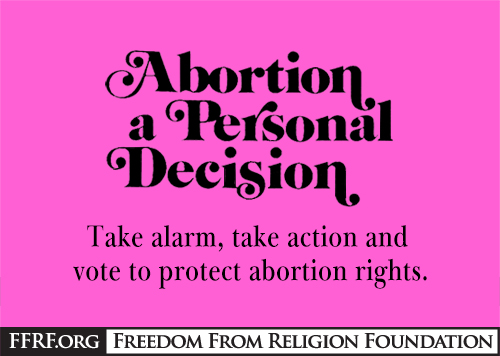
This Saturday, Jan. 22, marks 49 years since the U.S. Supreme Court issued its historic ruling that access to abortion is a constitutional right.
The 7-2 Roe v. Wade decision was a momentous game-changer for the rights and lives of American women. The Supreme Court decreed that “a person may choose to have an abortion until a fetus becomes viable, based on the right to privacy contained in the Due Process Clause of the 14th Amendment…” with viability generally determined between 24 and 28 weeks of gestation.
The liberalization of abortion care in the United States made abortion safer for the millions of women who previously navigated a checkered legislative landscape. At the time, 30 states criminalized abortion, meaning that women who had the resources were forced to travel sometimes thousands of miles to the nearest state where they could legally obtain an abortion.
The countless women who were unable to travel were compelled to turn to back-alley abortions or self-administer an abortion, risking death and major health complications. In fact, about 30 percent of illegal abortions were self-induced with coat hangers, knitting needles, and throwing oneself down a flight of stairs.
The passage of Roe v. Wade has virtually eliminated abortion-related deaths. Furthermore, the overwhelming majority of abortions are now performed within the first trimester, where the risk of mortality is 14 times safer than carrying a pregnancy to term.
Despite the abundance of research that shows the medical validity of Roe v. Wade, its future rests on shaky ground, thanks to unceasing attacks by fundamentalist Christians and the Roman Catholic hierarchy coupled with their overrepresentation and clout in state legislatures, governorships, Congress and now the U.S. Supreme Court. Indeed, anti-abortion attacks ramped up soon after abortion was made legal in all 50 states as a cold-blooded strategy by the Religious Right, inflaming abortion as a wedge issue.
The year 2021 marked the worst year for introduction and passage of anti-abortion legislation. The Supreme Court with its new supermajority of extremists, including three Trump appointees, is scheduled to determine the future of Roe v. Wade this June — and that future looks bleak. If Roe is overturned, more than 20 states are poised to ban or severely restrict abortion. This includes the Freedom From Religion Foundation’s home state of Wisconsin, which has a pre-Civil War abortion criminalization law on the books.
“The Freedom From Religion Foundation would not exist were it not for its principal founder Anne Gaylor’s early work as a national abortion rights activist,” notes her daughter Annie Laurie Gaylor, FFRF co-president. “We realized that the only organized opposition to abortion rights was religious in nature, and that for individual liberties to be safeguarded, dogma must never be enshrined in our laws and social policies.”
Gaylor adds that it is “unthinkable” that Roe v. Wade may be actually or effectively overturned by its 50th anniversary.
There has never been a more urgent time to defend abortion rights. Fully 98 percent of FFRF members support legal abortion. In commemoration of the 49th anniversary of Roe v. Wade, the state/church watchdog urges its members to contact their senators and demand that they pass the Women’s Health Protection Act, which would codify abortion rights. The Freedom From Religion Foundation submitted formal testimony in support of this bill, and thanks to the work of many activist citizens, including FFRF members, the act passed the House. Call your senators to tell them to work to pass this important piece of abortion legislation.
The future of Roe v. Wade demands our secular voices.

